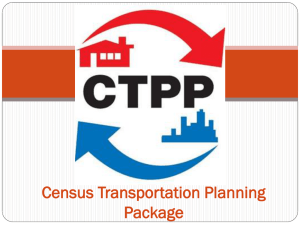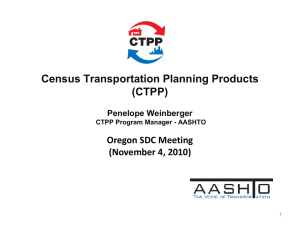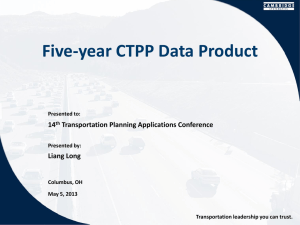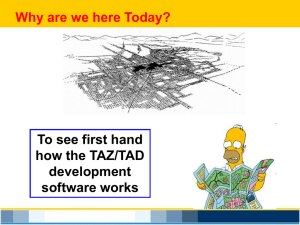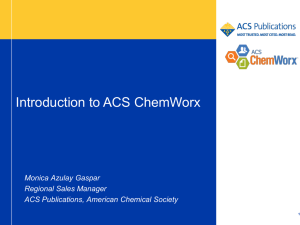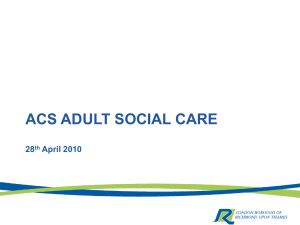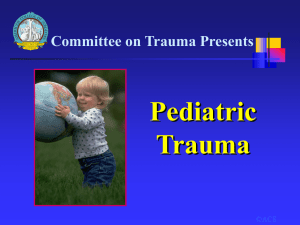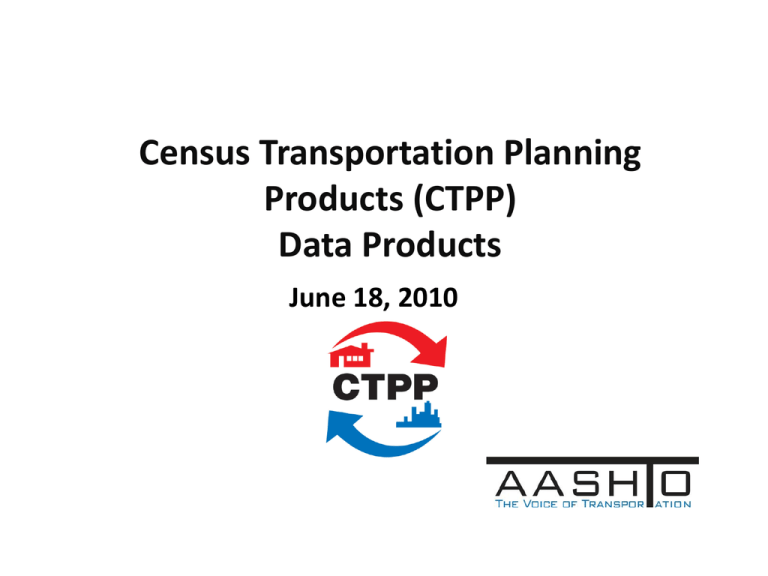
Census Transportation Planning
Products (CTPP)
Data Products
June 18, 2010
Key CTPP Products
• Transportation Profiles for state, county and
place
• CTPP based on 3-Year ACS Data Products
– Data access and visualization tools
• CTPP based on 5-year ACS Data Products
– TAZ development
– Data access and visualization tools
• National Data Products – Commuting in America
Key CTPP Products
• Transportation Profiles for state, county and
place
• CTPP based on 3-Year ACS Data Products
– Data access and visualization tools
• CTPP based on 5-year ACS Data Products
– TAZ development
– Data access and visualization tools
• National Data Products
Ready to Rock Profiles
• Transportation Profiles for state, county and
place
• 2000 – States, Counties (towns) cf. 1990
• 2005 – Single year ACS – States cf. 2000
• 2005 – 2007 – 3-yr ACS >20,000 cf. 2000
CTPP Profiles 2005 - 2007
•
Part 1 Profile 1 has the following tables:
– Total Persons, Persons in Households, Total Households, Average Household Size,
Average Vehicles per Households, Persons in Group Quarters, Total Workers and
Workers at Work, Mode to Work (including collapsed version), Travel Time to Work,
Departure Time to Work and Mean Travel Time by Mode to Work.
•
Part 1 Profile 2 has the following tables:
– Vehicles available in Household, Mode to Work by Poverty Status, Mode to Work by
Vehicles available, Household size by Vehicles available, Vehicles available by Workers in
Household, Persons in Household by Workers in Household, Household Income in
Household.
•
Part 1 Profile 3 has two tables:
– Mode to Work by Travel Time and Mode to Work by Time Leaving Home.
•
Part 2 Profile 1 has the following tables:
– Total Workers, Total Workers Excluding Home-based Workers, Mean Travel Time to work,
Average Vehicle Occupancy, Average Carpool size and Workers in Group Quarters, Total
Workers by Sex, Mode to Work, Total Workers by Industry, Travel Time to Work and
Arrival Time to Work.
•
Part 2 Profile 2 has one table:
– Mode to Work by Industry.
Where do you find the Profiles?
http://ctpp.transportation.org/Pages/default.aspx
http://download.ctpp.transportation.org/profiles_2005-2007/ctpp_profiles.html
3-Year Data Profiles
Read the Notes
and Cautions
What you get (Part 1, Profile 1)
What is going on here?
What you get (Part 1, Profile 1)
Mode To Work
Mode to Work Collapsed
Travel time to Work
Departure time for Work
Mean Travel time to Work
Vehicles available in HH
Mode to Work by Poverty status
Mode to Work by Vehicles
available
HH size by Vehicles available
3-Year Data Profiles for large areas
Key CTPP Products
• Transportation Profiles for state, county and
place
• CTPP based on 3-Year ACS Data Products
– Data access and visualization tools
• CTPP based on 5-year ACS Data Products
– TAZ development
– Data access and visualization tools
• National Data Products – Commuting in America
When do we get
CTPP based on 2006 – 2008 ACS
• June 2010
• Sept 2010
• Dec 2010
• Spring 2011
• Summer 2012
CTPP based on 2006-2008 ACS
released in text (.CSV) format
CTPP based on 2006-2008 ACS
data access software completed
ACS 2005-2009 standard
products released (tracts,
block groups)
TAZ 2010 Delineation
CTPP 2006-2010 (tentative)
CTPP based on 2006-2008 ACS
Table Summary
NUMBER of Tables
(excluding collapsed versions)
All Parts
204
Part 1 Residence Tables
123
Part 2 Workplace Tables
56
Part 3 Commuting Flow Tables
25
CTPP_custom_tabulations_based_on_3yracs2006_2008
Content
Characteristic
Examples
Socioeconomic
Industry, occupation, poverty status,
earnings, class of worker, usual hours
worked per week, employment status
Social and
demographic
Age, minority status/race/hispanic origin,
length of U.S. residence, language
spoken at home, school enrollment
Household
Household size, number of workers, age
of youngest child, number of people over
16, number of people under 18, linguistic
isolation, lifecycle (family type)
Housing
Tenure, units in structure, telephone
availability, vacancy status
Urban/ rural residence
- (Part 1 only)
Means of Transportation (MOT)Full Version MOT (18)
1 Total
2 Drove alone
13 Bicycle
3 Carpooled, 2-people
14 Walked
4 Carpooled, 3 people
15 Taxicab
5 Carpooled, 4 people
16 Motorcycle
6 Carpooled- 5- or 6- people
17 Other method
7 Carpooled- 7 or more people
18 Worked at home
8 Bus, trolley bus
9 Streetcar, trolley car, light rail
10 Subway, elevated
11 Railroad
12 Ferryboat
Collapsed Variables
• A “collapsed” version of a variable combines
categories on that variable
• Use of collapses is necessary because …
• Due to disclosure protections, there is a minimum
requirement of 3 unweighted records per cell for
calculations of
– Averages
– Aggregates
(e.g. mean travel time)
(e.g. number of vehicles used)
• Or the table is suppressed!
Means of Transportation (MOT)
Collapses
• A CTPP subcommittee defined MOT
collapses for the CTPP based on 3-year ACS
• Collapses are designed to
– Adapt to disclosure protection needs
– Accommodate a variety of planning needs in
different types of geographic areas
– Versions do not all fully nest
– MOT (7) provides more detail on non-private
vehicle modes
– MOT (6) provides more detail on carpools
Means of Transportation (MOT)Collapsed Versions
MOT (11)
MOT (7)
1 Total
1 Total
2 Drove alone
2 Drove alone
3 Carpooled, 2-person
4 Carpooled, 3 or more people
3 Carpooled
5 Bus, trolley bus
6 Streetcar, light rail, subway
4 Public transportation
7 Railroad, ferryboat
8 Bicycle
9 Walked
10 Taxi, motorcycle, other
method
11 Worked at home
5 Bicycle or walked
6 Taxi, motorcycle, other
method
7 Worked at home
Means of Transportation (MOT)Collapsed Versions
MOT (6)
MOT (4)
1 Total
1 Total
2 Drove alone
2 Drove alone
3 Carpooled, 2-person
4 Carpooled, 3 or more people
3 Carpooled
5 Public transportation, bicycle, 4 Public transportation, bicycle,
walked, taxi, motorcycle, other
walked, taxi, motorcycle, other
method
method, and worked at home
6 Worked at home
Content- Means of
Transportation
• MOT (18) is used in univariate tables
• Only 5 characteristics are allowed to cross with
MOT, which made the threshold go away
• The CTPP subcommittee selected:
– Travel time
– Departure time from home /
arrival time at workplace
– Vehicles available in household
– Age
– Household income
• All 4 collapsed MOT versions are crossed by these
5 variables in all 3 Parts of the CTPP
Content- Journey-to-Work
• Besides means of transportation, other
commuting tables are included:
– Travel time (minutes)
– Departure time from home /
arrival time at workplace
– Vehicles available in household
– Number of vehicles and carpools used
– Workers per carpool, vehicle ridership
Geography Levels
• Workplace and Residence data is available at the
following levels for areas with population 20,000 or
greater:
–
–
–
–
–
–
Nation
State
County
County Subdivision
Place
PUMA (Public Use Microdata Area) – place of work PUMAs
are slightly different from residence ones
– Metropolitan Statistical Area (MSA)
– MSA Principal City
Geography Levels
• Flow data is available at the following levels
(residence-to-workplace):
–
–
–
–
–
–
–
–
–
State to state
County to county
County-subdivision to county-subdivision
Place to place
PUMA to PUMA
Principal-city to principal-city
County to place
County-subdivision to place
PUMA to place
Accessing the 3-year data
• All available on a single easy-to-use free website
– Free to use, but you do need to register
– Online help and tutorials help users along the way
• Create “sessions”, which are groups of tables with a
common geography selection
– Select geography using a map and/or drill down through
the geographic hierarchy
• Search for tables by dimension name or any relevant
word
– Either within one of the parts or across all parts
Viewing the data
• Open any table, either in your “session” or from the public
view.
• From there, you can customize your view of the data:
–
–
–
–
–
Rearrange dimensions
Make selections on any dimension
View charts
View the data on a thematic map
Aggregate items using standard functions or provide a formula (margin
of error will be recalculated for you for simpler formulas)
– Save your report for future use
– Save your selections and aggregations for use in other tables
Exporting the Data
• Once you have set up the table you want to
see, you can export it:
– Export the data in CSV, XLS or Beyond 20/20 (IVT)
format for use in your own analysis tools
– Export SHP files for viewing maps in your own GIS
engine
• Entire “sessions” can be exported in a single
operation.
Key CTPP Products
• Transportation Profiles for state, county and
place
• CTPP based on 3-Year ACS Data Products
– Data access and visualization tools
• CTPP based on 5-year ACS Data Products
– TAZ development
– Data access and visualization tools
• National Data Products – Commuting in America
CTPP and ACS Schedule
• Dec 2010
• Spring 2011
• Dec 2011
• Summer 2012
ACS 2005-2009 standard
products released (tracts,
block groups)
TAZ 2010 Delineation
ACS 2006-2010 standard
products released (tracts,
block groups)
CTPP based on 2006-2010 ACS
(tentative)
A few notes about CTPP based on
5 year ACS (2006 – 2010)
• Includes all size geography
– Down to TAD, Tract, Block Group or TAZ
• Two “sets” of tables dependant upon population
– Large area 20,000 and above
– Small area below 20,000
• More collapsed/collapsing variables
– To get better quality data
• NCHRP 8-79 - Producing Transportation Data
Products from the American Community Survey that
Comply with Disclosure Rules
Key CTPP Products
• Transportation Profiles for state, county and
place
• CTPP based on 3-Year ACS Data Products
– Data access and visualization tools
• CTPP based on 5-year ACS Data Products
– TAZ development
– Data access and visualization tools
• National Data Products – Commuting in America
A few notes about
National Data Products
• A new incarnation of
Commuting in America
• May be a series of
reports
• Likely based on Public
Use Micro Sample data
(PUMS)


